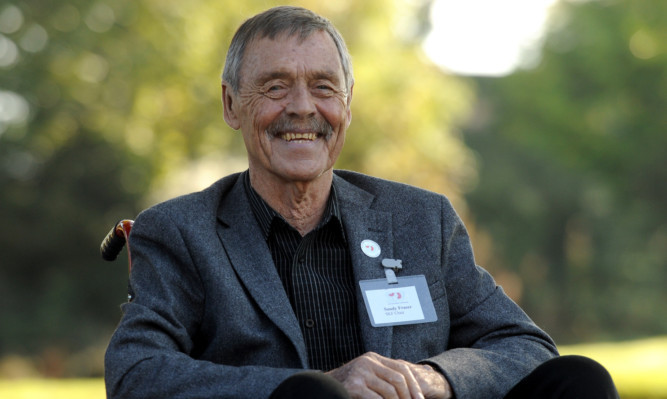A double transplant patient has told how his new kidney changed his life giving him the confidence to become a father.
Sandy Fraser, 68, was speaking at the Scottish Kidney Federation’s patient conference held in Dunfermline.
Mr Fraser, who worked in Fife for years as a social worker and now lives in Kinross, moved inexorably towards serious health problems caused by his deteriorating kidneys while still in his early thirties.
“I could hardly walk, I was breathless and, of course, that had a massive impact on my life, my relationships, my employment, and my ability to do so many things,” he said.
“There is nothing it doesn’t affect.”
He said he was very fortunate to be working for the organisation he did, in the job he did, in that he had “very sympathetic” employers.
Working at that time in Glasgow, he couldn’t walk up five flights to see service users, and was given cases on the ground floor.
“I was lucky, but so many patients are not so lucky and can lose their jobs or their businesses.
“Many people lose their jobs and their relationships,” he said.
Apart from being a livelihood, work is also vital as an encouragement to get up and keep going for patients.
“If I had had to leave work I would have been quite depressed and isolated,” he added.
Put on dialysis, Mr Fraser explained how things are better now when it comes to treatment and support.
“Life is better, it was much more of an existence in the early days, but there is still a long way to go.”
He has also undergone two transplants, in 1978 and then in 2001.
“The first was excellent and I had my two sons because of that,” he continued. “I have Iain and Stephen now, and otherwise I wouldn’t have had them.”
Now he is again on dialysis three times a week, something he says he looks on “very much as a part-time job”.
He said his philosophy was to take one day at a time, and enjoy each day as much as he can before moving on to the next day as he never knew what that might bring.
With his experience, he is supportive of an opt-out rather than opt-in donor card scheme.
And he said those tasked with changing the system should spend time on a dialysis ward to see first hand what patients go through.
